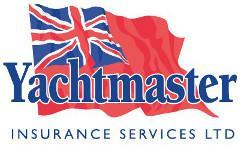Most of the policies we provide these days have the vessel sums insured based on “market value”, so that the value is agreed at the inception or renewal of the policy period and this is intended to be a figure which is adequate, should the vessel be completely destroyed, for the owner to go out and buy another vessel of the same age, type and condition.
Obviously, there are some craft that are complete “one offs” so that there are no other identical craft to make an exact replacement, but the principle is still there. Generally we take the “price paid” as being the market value; after all, if the vendor could have achieved a higher sale price, no doubt he would have done so. In addition to the price paid we can make allowances for subsequent work undertaken or extra items purchased for the vessel. Sometimes when the position is unclear or unusual circumstances have prevailed it is necessary to have a valuation from a surveyor or yacht broker and their guidance can be taken into account.
It is a fact nonetheless that a very large proportion of proposers requesting quotes for insurance on boats they have just purchased want to insure their vessel for more than they have paid for it, explaining that they have “bought a bargain” and implying that its worth a lot more than they have paid for it. It’s clear that the reverse is going to be true – that almost nobody is going to pay more for the vessel than they think it’s worth but clearly not every transaction is going to be at a bargain price – it’s simply the market value, the best price that can be obtained at the time. It must be part of human nature to think one has negotiated a “good deal”!
Just a note of caution with the Winter fast approaching, I heard that the owner of an expensive motor cruiser arranged to have a heater left on board whilst she was unattended so that his vessel was warm and dry when he next wanted to use it. Unfortunately the wash from a passing vessel upset the heater which then set fire to the vessel and subsequently the 2 adjacent craft leaving the underwriters with bills in excess of £500,000!
Another vessel had plastic seacocks fitted – all was well until she had a fire in the engine area and the plastic seacocks melted. The subsequent inflow of water neatly put the fire out - but unfortunately the vessel sank!
D. Long - 25/11/2010
Return to Media Publications & Advice.

